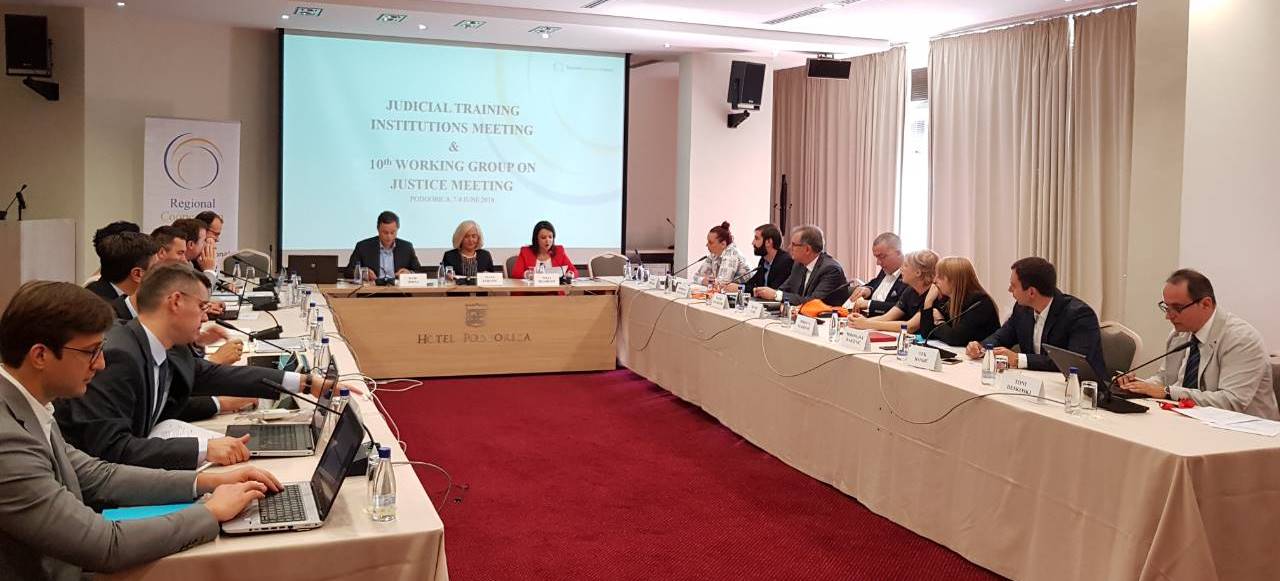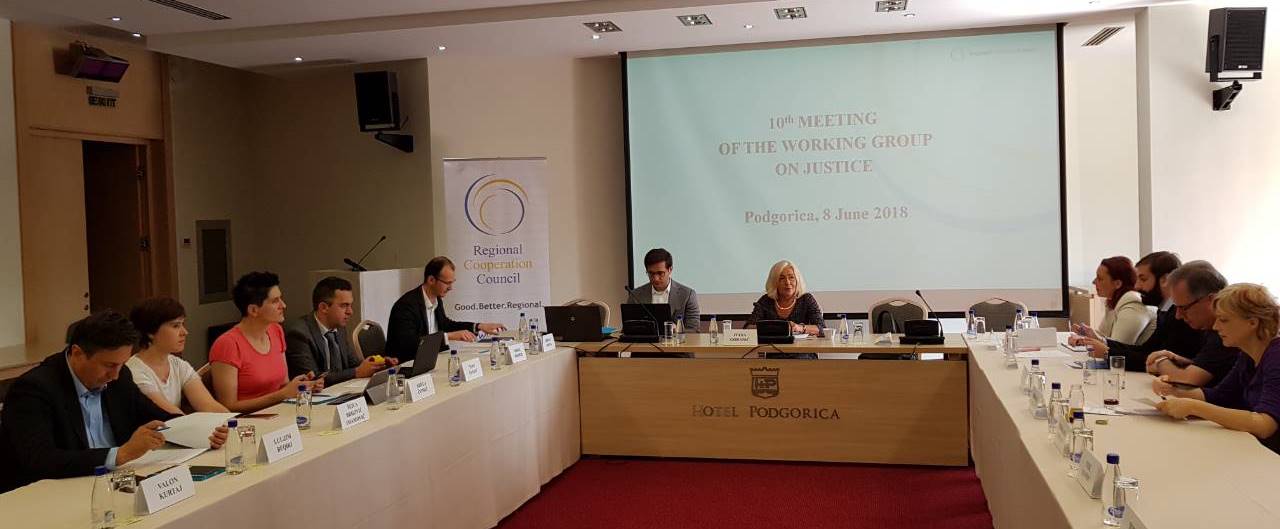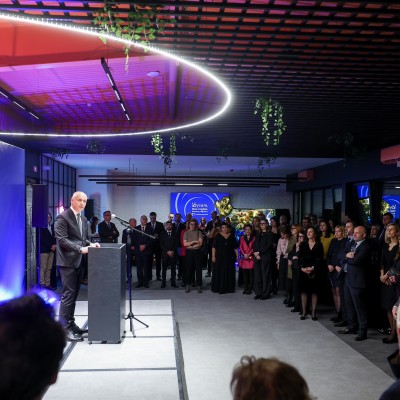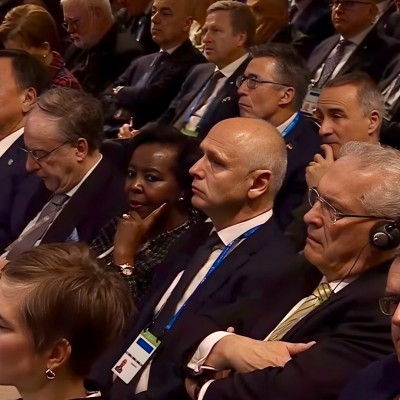Western Balkans' Judicial Training Institutions and Working Group on Justice meet in Podgorica
08 June 2018

Western Balkan Judicial Training Institutions and Councils for Judiciary meet in Podgorica, 7 June 2018 (Photo: RCC/Elvira Ademovic)

10th meeting of the Western Balkans Working Group on Justice (WB WGJ), in Podgorica, 8 June 2018 (Photo: RCC/Elvira Ademovic)
Podgorica - Regional Cooperation Council (RCC) convened meeting of the Western Balkan Judicial Training Institutions (WB JTIs), Councils for Judiciary and Working Group on Justice (WGJ), held on 7-8 June 2018 in Podgorica, Montenegro.
The first meeting in this 2-day series gathered representative of the Judicial Training Institutions (JTIs), Councils for Judiciaries and Ministries of Justice (WGJ) in the Western Balkans (WB) to discuss the role of judicial training in the appointment and career of judges and prosecutors.
The meeting was opened by Maja Milosevic from JTI in Podgorica, Marc Jorna in charge of Rule of Law in WB on behalf of the European Commission’s (EC) Directorate-General for European Neighbourhood Policy and Enlargement Negotiations (DG NEAR), and Ivana Goranic, Rule of Law Expert at RCC.
The WB JTIs meeting participants presented their legal cooperation framework between council and training institution, both of the utmost importance for the independence and competence of judiciary. Given that these institutions have not been a part of legal history in the region, better cooperation, improved legal framework and stronger support were welcomed by all participants. It was concluded that some common trainings for JTI and councils for judiciary should be planned in the Regional Programme 2019-2020.
EC representative expressed strong support to the work of the RCC at the regional level. The participants further discussed next steps in cooperation of these institutions, proposing other concrete topics to be included in the Regional Judicial training Programme 2019-2020. The Programme is to be developed by RCC while the trainings would be implemented by the RCC with support of European experts, institutions and networks.
The meeting participants also talked about the role of the councils for judiciary in the educational process and the relevance of JTIs and Councils in the procedure for appointment of judges’. On top of that representatives of the European Commission and European Judicial Training Network (EJTN) presented their views on the improvement of cooperation and presented information on activities and plans in the EU judicial training.
EJTN representative, who is also the RCC’s contact point in judicial training area in WB, presented the statistics on the participation of the WB judges and prosecutors in EJTN seminars. The statistics showed that that judges and prosecutors from the region are more interested in participating in regional seminars, at least initially before attending specialized EJTN trainings. The RCC is perceived as EJTN’s regional partner and link between EJTN and WB judiciaries. The RCC has been included as the EJTN's training partner for judges and prosecutors in the Western Balkans, as stated in their Annual Report for 2017.
South East European Law School (SEELS) representative offered suggestions on how to improve cooperation between faculties of law and judicial training institutions and proposed signing Memorandum of Understanding (MoU) at regional level between JTI, RCC and SEELS, confirming the existing and anticipating structured future cooperation.
The meeting confirmed the RCC proposal to develop the Guidelines on minimum standards in training process, The guidelines would enable regular exchange of experts and trainers in the region as well as development of the Regional programme 2019-2020 before the end of 2018, stipulating work of the RCC cooperation with EC’s Technical Assistance and Information Exchange instrument (TAIEX), European Institute of Public Administration (EIPA) and Council of Europe (CoE).
The RCC was tasked to make a list of existing materials and modules in EU law in WB thus enabling use of the results and improve sustainability of projects in the area of judicial training.
Today, Western Balkans Working Group on Justice (WB WGJ) met for the 10th time. It gathered representatives of the ministries of Justice from the region and partners such as Deutsche Gesellschaft für Internationale Zusammenarbeit Open Regional Funds Legal Reform (GIZ ORF LR), EJTN and SEELS (South East European Schools of Law), to discuss RCC activities in the rule of law field in 2019, the future role and structure of the WB WGJ. The Group additionally discussed the amendments to the Terms of Reference of the WGJ, aiming to make it more specific and in accordance with the work of previous 4 years.
The RCC has informed the participants about upcoming conference by the organisation in close cooperation with Council of Europe (CEPEJ – Commission for efficiency of judiciaries and Human rights education for legal professionals – HELP Programme) and EJTN planned for late October 2018.



